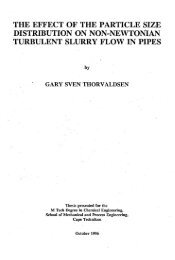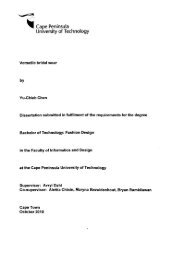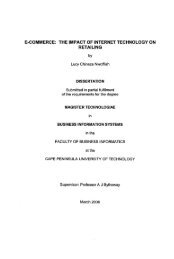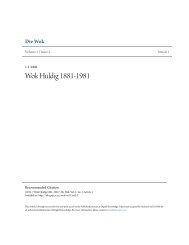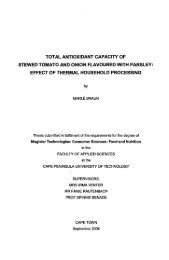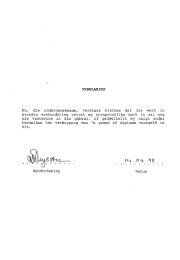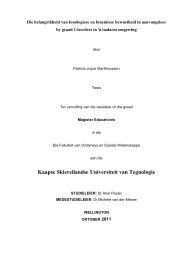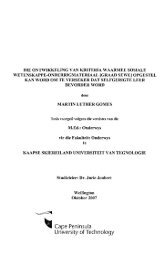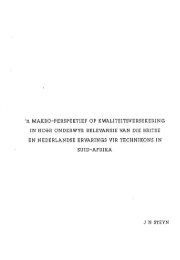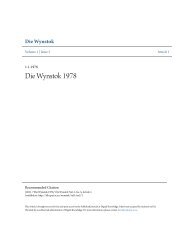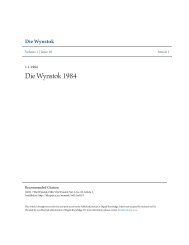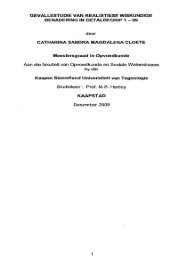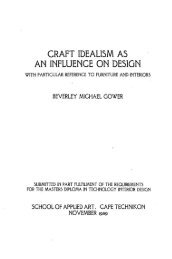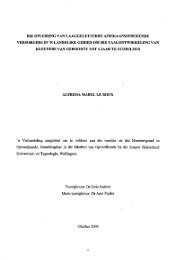an investigative analysis of the psychological characteristics and job ...
an investigative analysis of the psychological characteristics and job ...
an investigative analysis of the psychological characteristics and job ...
Create successful ePaper yourself
Turn your PDF publications into a flip-book with our unique Google optimized e-Paper software.
3.3.2 Characteristics <strong>of</strong> Qu<strong>an</strong>titative Research<br />
Struwig <strong>an</strong>d Stead (2001: 4; 16) also mention certain <strong>characteristics</strong> <strong>of</strong> <strong>the</strong> qu<strong>an</strong>titative research<br />
approach. They are <strong>the</strong> following:<br />
3.3.2.1 Constructs <strong>an</strong>d <strong>the</strong>ir measurement<br />
Qu<strong>an</strong>titative research examines constructs or variables that are based on <strong>the</strong> hypo<strong>the</strong>sis<br />
derived from a <strong>the</strong>oretical scheme. It normally gives a weak <strong>the</strong>oretical account <strong>of</strong> how<br />
constructs are derived. Constructs, however, are <strong>the</strong> central focus in qu<strong>an</strong>titative research.<br />
To conduct qu<strong>an</strong>titative research, <strong>the</strong>se constructs must be measured. The measurements<br />
<strong>of</strong> constructs are usually done through <strong>the</strong> use <strong>of</strong> questionnaires <strong>an</strong>d/or some form <strong>of</strong><br />
structured observation.<br />
3.3.2.2 Causality<br />
Qu<strong>an</strong>titative research <strong>of</strong>ten tries to establish causal relationships between constructs.<br />
Causal relationships c<strong>an</strong> be defined as cause <strong>an</strong>d effect relationships. The frequent use <strong>of</strong><br />
independent <strong>an</strong>d dependent variables is evidence <strong>of</strong> qu<strong>an</strong>titative researchers' tendency to<br />
establish causal relationships between variables. A causal relationship between variables<br />
explains why things are <strong>the</strong> way <strong>the</strong>y are by specifying <strong>the</strong> causes <strong>the</strong>re<strong>of</strong>.<br />
3.3.2.3 Generalisation<br />
Qu<strong>an</strong>titative researchers prefer to generalise results beyond <strong>the</strong> confines <strong>of</strong> <strong>the</strong> research<br />
sample. A great deal <strong>of</strong> attention is paid to sampling issues <strong>an</strong>d particularly to <strong>the</strong><br />
representativeness <strong>of</strong> <strong>the</strong> sample. It is import<strong>an</strong>t to establish that findings c<strong>an</strong> be<br />
generalised legitimately to awider population.<br />
74



